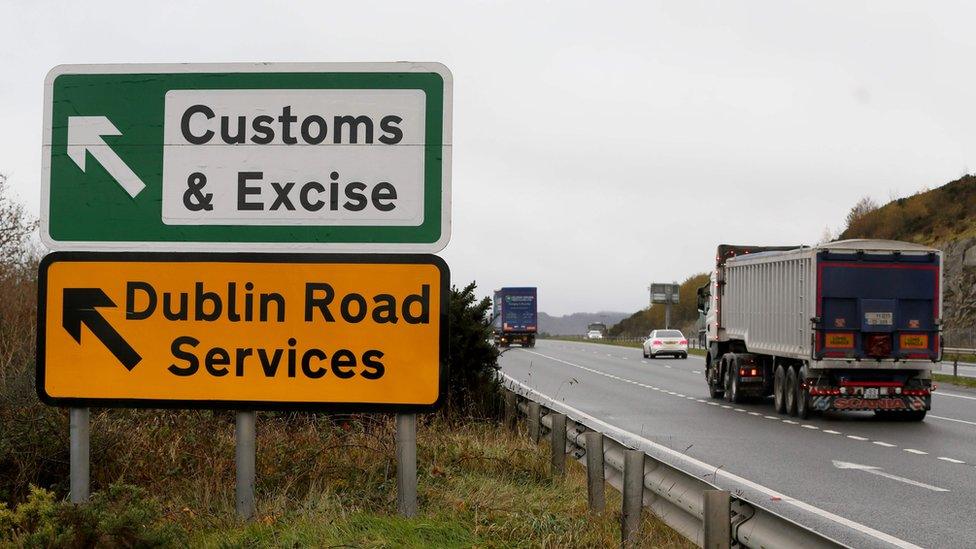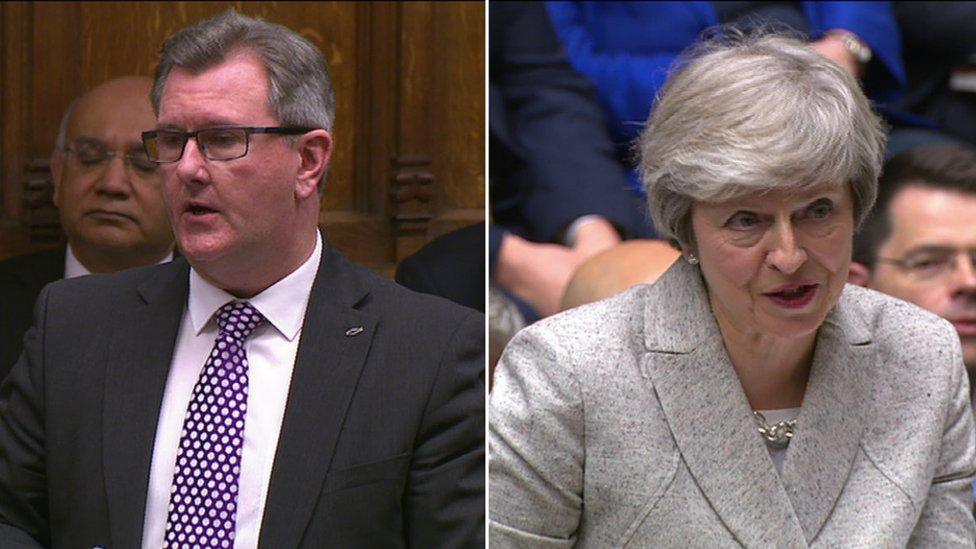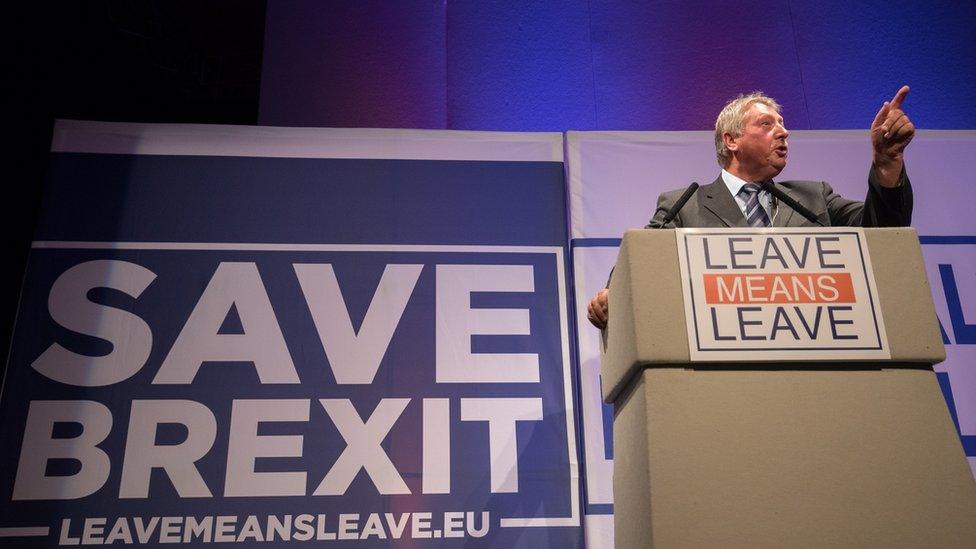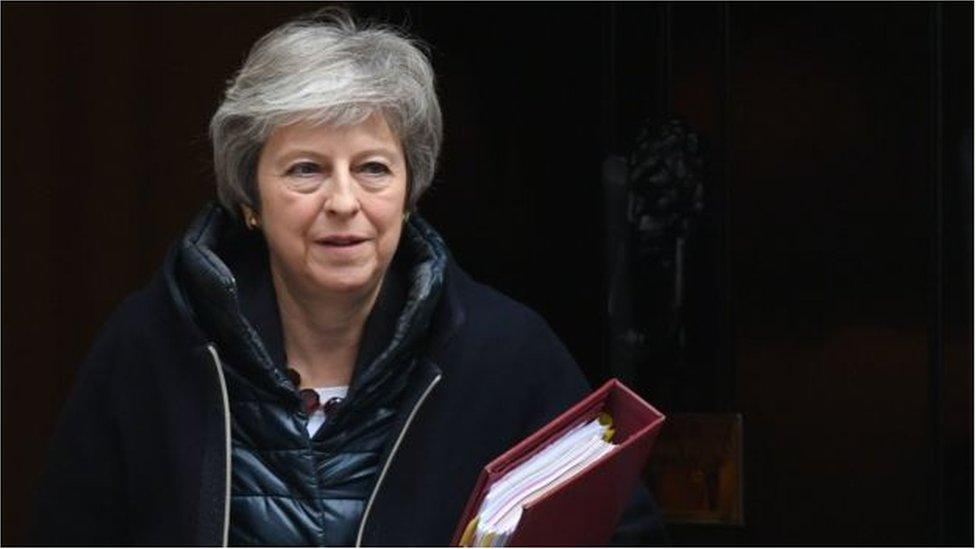Brexit: Draft declaration refers to Irish border technology
- Published
- comments

The use of technology on the border has been championed by some Brexiteers.
A draft of the political declaration being negotiated between the UK and the EU refers to the possible use of technology in ensuring there will be no hard Irish border after Brexit.
This comes ahead of Sunday's summit of European leaders in Brussels.
The draft declaration, obtained by the BBC, says the UK and EU plan to put in place ambitious customs arrangements.
It indicates they will make use of "all available facilitative arrangements and technologies".
The document refers to the mutual recognition of the EU and UK's trusted trader programmes and other forms of cooperation to recover taxes and duties, and combat customs fraud.
It also says that "such facilitative arrangements and technologies will also be considered in developing any alternative arrangements for ensuring the absence of a hard border on the island of Ireland on a permanent footing".
Legal authority
The draft declaration states that both the UK and the EU are determined to replace the backstop solution on Northern Ireland contained in the UK's withdrawal agreement "by a subsequent agreement that establishes alternative arrangements for ensuring the absence of a hard border on the island of Ireland on a permanent footing".
The use of technology to enable cross-border trade in Ireland after the UK leaves the EU has been championed by some Brexiteers.
However, DUP sources are sceptical about whether the kind of commitments contained in the political declaration adequately meet their concerns, given that the backstop contained in the proposed withdrawal agreement will have legal authority.

The DUP MP Jeffrey Donaldson clashed with the prime minister when she appeared in the Commons on Thursday to answer questions on the draft political declaration
On Thursday afternoon, the party's chief whip Sir Jeffrey Donaldson, repeated the DUP's opposition to the border backstop proposal in the draft withdrawal agreement.
'End to the backstop'
"In light of the political declaration, it is now clear the EU are beginning to accept there are alternative arrangements, which can be put in place without the backstop," he told MPs.
"If the prime minister wants the support of my party, then we need to see an end to the backstop and those alternative arrangements put in place."
The DUP is opposed to the backstop because if it took effect, it would see extra checks on goods coming into Northern Ireland from Great Britain to ensure they met EU standards.
The party has said it sees any differentiation as a threat to the integrity of the union and the economy in Northern Ireland.
However, the government insists the deal protects the union and has argued if the backstop came into effect, it could actually put Northern Ireland's businesses in an advantageous position.
Mrs May told the Commons that no-one wants to see the backstop come into effect.
"The best way to ensure that is to get the future relationship into place and look at alternative arrangements," she said.
The prime minister added that she is "happy to discuss with the DUP" what those arrangements could be.
She said what was important in the agreement was a legal means to guarantee no hard Irish border after Brexit, and that the government would continue in its commitment to providing that.
- Published22 November 2018

- Published22 November 2018

- Published22 November 2018
